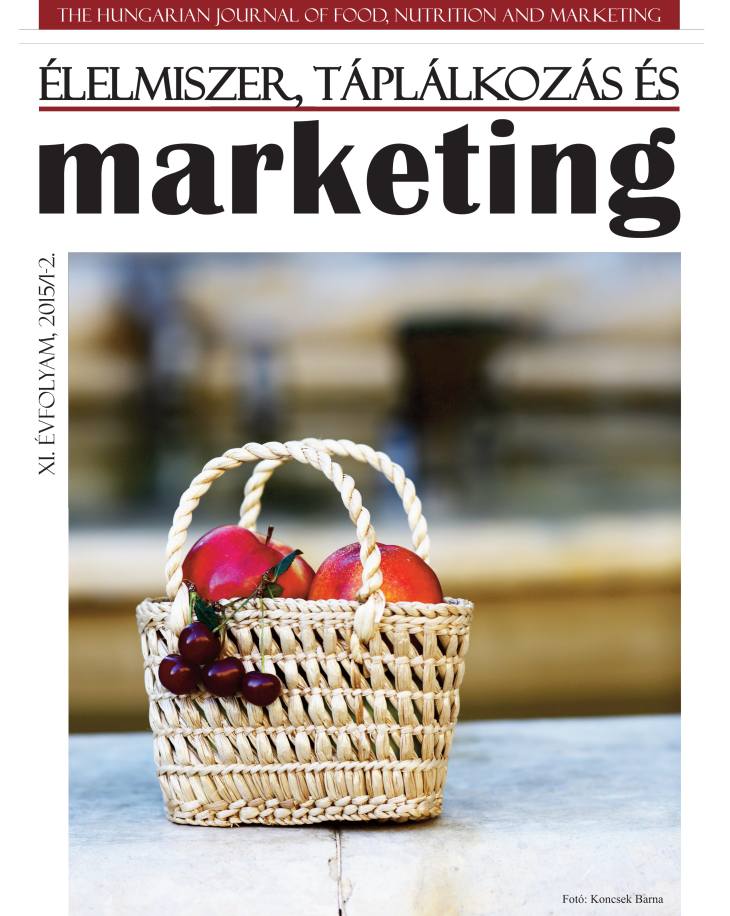Étkezési stílus módszertani megközelítésben: kontrollálatlan evés vagy érzelmi evés?
Absztrakt
Overweight and obesity is an endemic that appears in the developed countries of the world. Overweight and obesity means seriousexpenditure for the consumers, for the employers and for the national states both in the prevention and in the treatment phase. Innational and international literature several authors deal with the research of the dimensions of healthy lifestyle either in a complexway or focusing on a special area (e. g. smoking, alcohol consumption, physical activity or eating behaviour). were are more testsinvestigating food consumption but the most widely used ones are the Free Factor Eating Questionnaire (FFEQ) and the DEBQ(Dutch Eating Behavior Questionnaire). wese scales were validated in more countries on the population with normal weight andoverweight obese individuals and three types of eating behaviour were identified, namely emotional eating, restrained eating andexternal eating. We aim of this study is to introduce the adaptation possibilities of each scales (TFEQ 16, TFEQ 20) measuringeating habits. In an empirical research 919 adult people were interviewed and 407 people answered the attitude statements ofTFEQ 16, and finally 512 people fulfilled the TFEQ 20. e results of the primary research do not completely support the originalfactor structure. In case of TFEQ 16 the emotional eating appears in two factors. In case of TFEQ 20 only three items of cognitivecontrol can be validated. In the future the authors plan to extend the research to examine different relationships with BMI and segmentthe population based on their eating styles in order to develop an effective marketing program for them.



